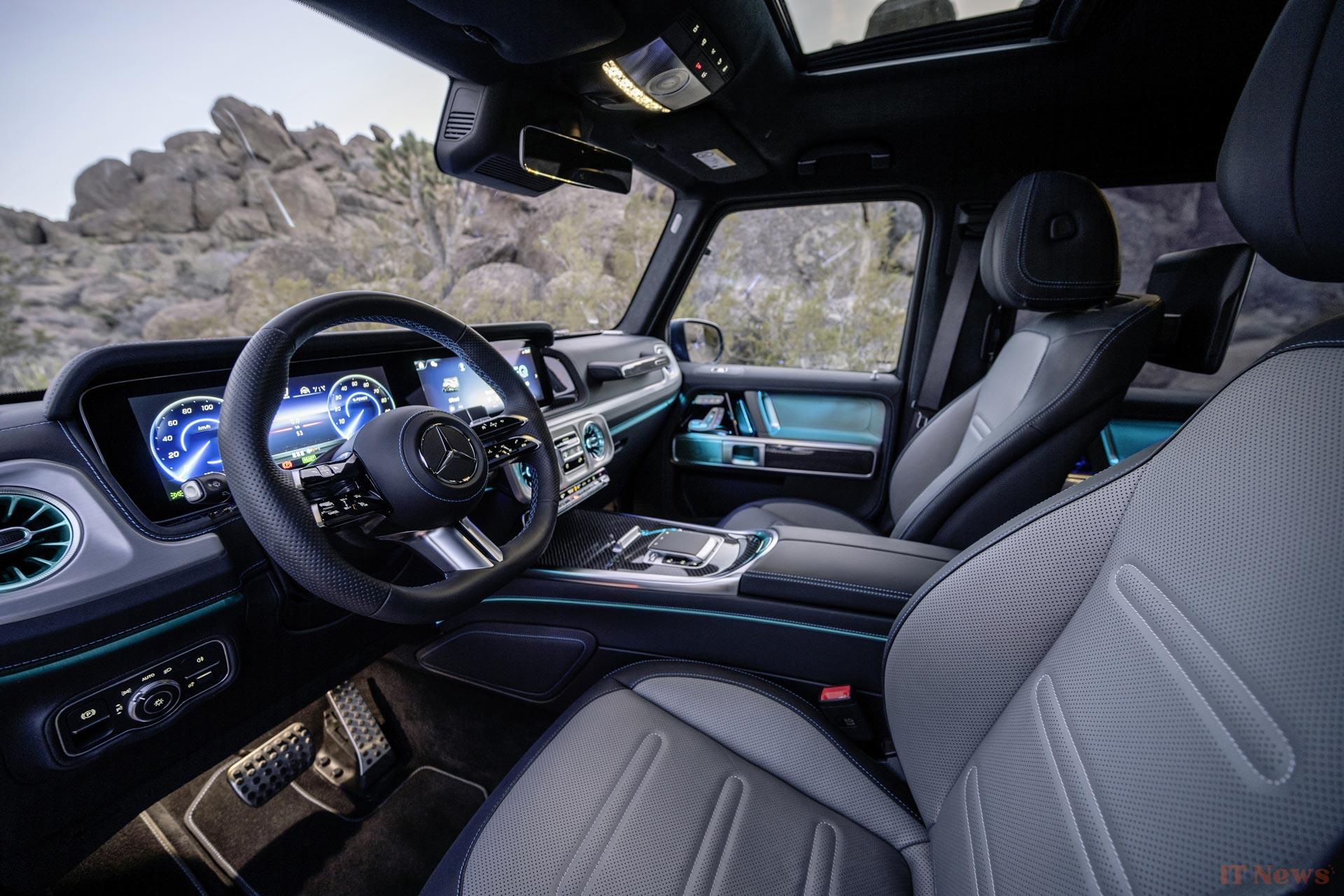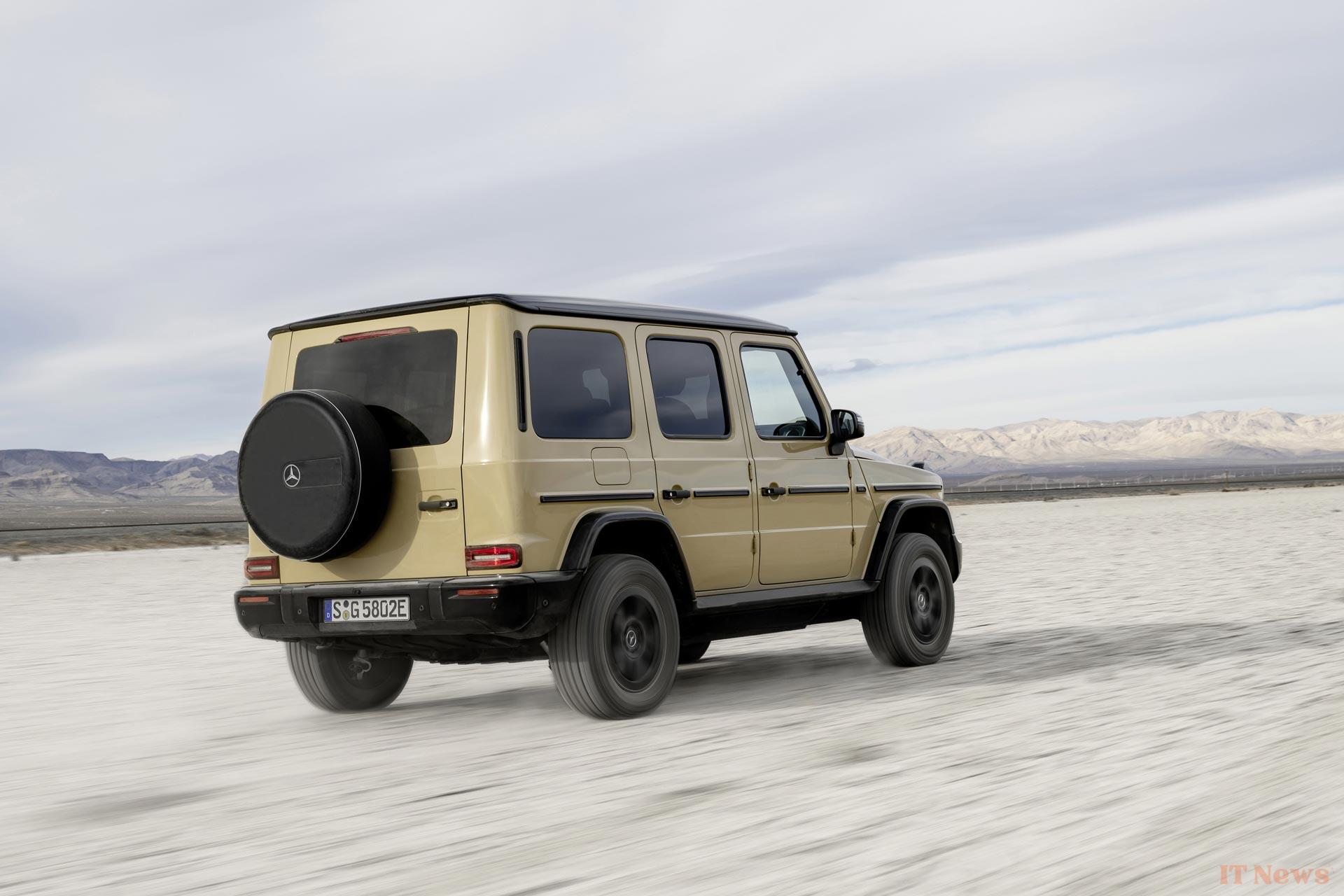It was a bold and symbolic gamble for Mercedes, transforming the raw, roaring off-road icon, the G-Class, into a silent ambassador of the electric age. On paper, the idea had the potential to appeal to fans of bold gestures. But nearly a year after its grand launch, the market reality is stark. The G 580 EQ, the all-electric version of the luxury off-roader, is gathering dust in dealerships.
Behind the scenes, tongues are loosening: "The car is sitting in dealerships like a brick, it's a complete flop", a Mercedes executive told the German daily Handelsblatt. Another manager barely tempers this, calling it a "niche model with very low volumes".
The figures, cold and implacable, confirm this bitter observation. By the end of April 2025, only 1,450 units of the electric G-Class had found buyers in Europe. At the same time, its thermal version, with its six or eight cylinders, sold nearly 9,700 units. The myth dies hard and the picture is even bleaker in key markets: 58 sales in China, 61 in South Korea… and not a single delivery recorded in the United States.
Officially, the manufacturer wants to be reassuring, stating that sales are "in line with plan". A facade of communication that struggles to mask palpable internal disappointment.
The reasons for a failed bet
So, why are customers turning their noses up at this battery-powered behemoth? The first reason is undoubtedly its positioning. With a starting price of around €180,000 in France, it faces competition... internally. Even if it requires an additional financial outlay, long-time customers can afford the legend, the real thing: the G 63 and its expressive V8. So yes, there's an ecological penalty of €70,000 on the thermal versions, and that considerably increases the bill... but that doesn't seem to be an insurmountable obstacle in the face of the desire for exclusivity and character. Especially in this range and for a model of this type.
Besides the price, the technical specifications also make people grind their teeth. To electrify its icon without compromising its safe-on-wheels design, Mercedes made some serious compromises. Literally. With nearly 3.1 tonnes on the scale, the electric G has a payload limited to just 415 kg and, to make matters worse for such a vehicle, is deprived of the ability to tow a trailer.
While its impressive off-road capabilities, thanks to its four independent motors, allow it to turn on the spot like a tank, its range melts like snow in the sun. The promised 473 km in the WLTP cycle is difficult to translate into more than 200 km on the highway. A detail that weighs heavily on the image of robustness and flawless versatility of the original G-Class.
A strategic shift in perspective
This resounding failure is symptomatic of Mercedes' difficulties in its electric transition. The "Electric only" approach, which aimed to sell only electric vehicles by the end of the decade, has been shelved. Sales of other models in the EQ range are stalling, and even the overall electric luxury market is showing signs of weakness.
The lesson seems to have been learned, and the setback of the electric G-Class could force Mercedes to revise its plans for the future, starting with the highly anticipated "small G-Class" planned for 2027. Announced as exclusively electric, it could ultimately, according to information from Handelsblatt, be equipped with a combustion engine. "The matter is under consideration," an internal source said.





0 Comments